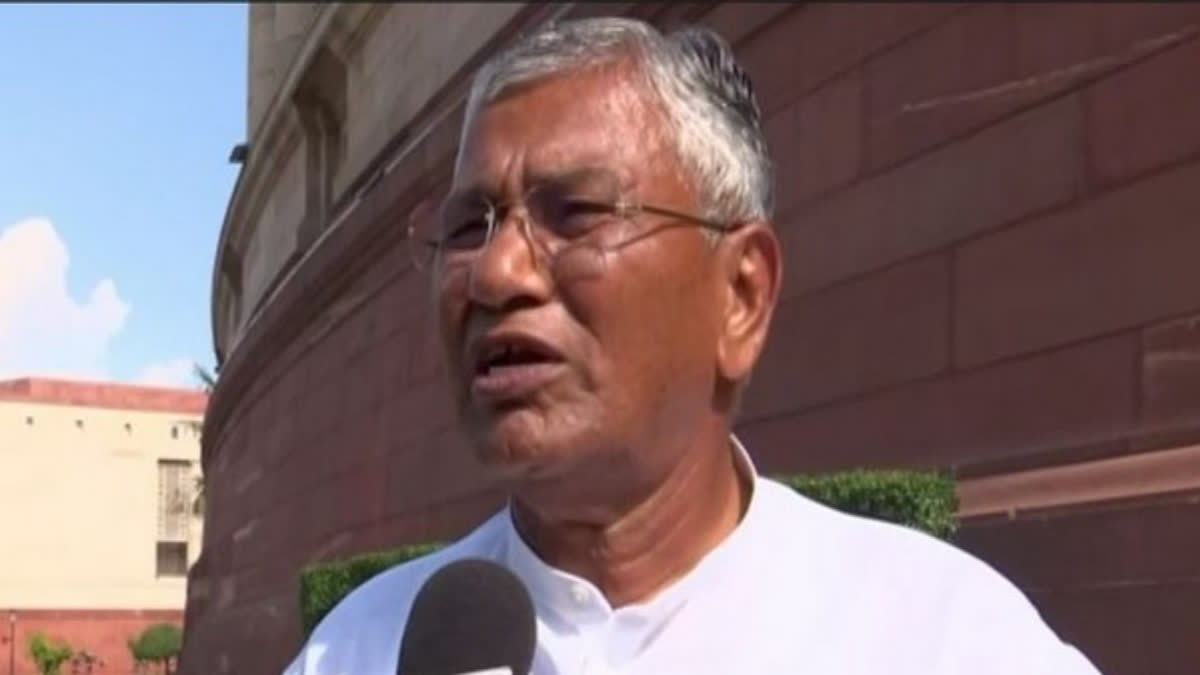New Delhi: Being aware of the fact that the threat of Islamic and Khalistani terrorism has increased in India, a Parliamentary Committee has asked the central government to strengthen its coordination with the INTERPOL and utilize its database relating to terrorist and terror offences to pre-empt and respond to terrorist strikes and attacks in the country swiftly and decisively.
The Parliamentary Committee of the Ministry of External Affairs in its 28th report also suggested that the ongoing process of negotiations and signing of Mutual Legal Assistance Treaty (MLATs) and security cooperation agreements with USA, Brazil, Mongolia, Belarus should be completed at the earliest.
"The potential for signing of such treaties and agreements with the remaining countries should also be explored and efforts made for effective operationalization of these treaties and agreements," the committee said. The MLAT in criminal matters is in force with 41 countries. India has also signed 28 Agreements and MoUs on security cooperation with other countries.
Significantly, signing of MLAT in criminal matters with Germany & Mozambique are at final stage while negotiation meetings are going on with Kenya, Philippines and Nepal for finalisation of text of the Treaty. The Committee underlined that MLAT in criminal matters would improve the effectiveness of the contracting countries in prevention, investigation, prosecution and suppression of crimes and enable continued cooperation between the intelligence and law enforcement agencies of the participants.
“At the same time, security cooperation agreements provide an institutional mechanism to enhance cooperation for combating transnational crimes and international terrorism, cyber crimes, drug trafficking, money laundering, counterfeiting of Indian currency notes, human trafficking etc,” the committee chaired by BJP MP PP Chaudhary said.
It is worth mentioning that in order to enhance its capacity on counter terrorism, India has established Joint Working Groups on Counter Terrorism (JWG-CT) with 27 countries.
India has engaged with regional bodies such as BIMSTEC, SAARC, ASEAN Regional Forum, SCO, BRICS and QUAD forum. Regular training courses, conferences and joint exercises are conducted in collaboration with State police and foreign partners and new technological tools are being procured for enhancing capacity in counter terrorism operations.
“The ambit of the multi agency centre dealing with counter terrorism has been expanded to include linkages of other crimes with terrorism. National Security Guard (NSG) and NIA nodes and capacities have been expanded to deal with counter terrorism responses,” the report highlighted. Besides, legal action against wanted terrorists in other countries is also pursued through the INTERPOL.
The Ministry in its action taken report has informed that on the basis of the UN Counter Terrorism Strategy, a draft National Counter Terrorism Strategy has been formulated and shared with MHA.
The Committee while acknowledging all the efforts made by the Government, desire that in view of India’s continued vulnerability to terrorism and its consequences, the Government should improve its counter terrorism strategy by incorporating best practices on counter terrorism of other countries, enhance its domestic counter terrorism infrastructure by infusing resources, upgrading its capabilities and making use of new technological tools.
Stressing the need to make the JWGs and regional bodies more effective and outcome oriented, the committee recommended that a comprehensive assessment of their working may be carried out and an action plan be prepared accordingly. Apart from Khalistani terrorism, according to the committee, the problem of terrorism in India is largely sponsored from across the border.
“Pakistan-ISI has close links with terrorist outfits like Lashkar-e-Toiba (LeT), Jaish-eMohammad (JeM), Hizbul Mujahideen (HM), Indian Mujahideen (IM), etc. and provides them safe havens, material support, finance and other logistics to carry out terrorist activities in India,” the committee said in its report.
Read More



